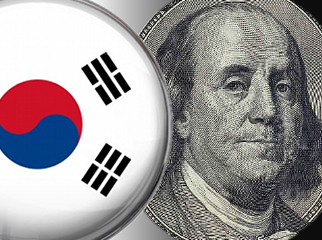 A proposal to build a massive Asian casino hub in South Korea’s Incheon region is in serious peril after one of its main backers failed to come through with the necessary financing. The hugely ambitious EightCity project, which was announced with great fanfare in October, envisioned a $290b complex of integrated resort-casinos, theme parks, ski slopes and a Formula 1 racetrack occupying some 80 square kilometers of Yongyu-Muul Island near the Incheon International Airport just west of the national capital Seoul.
A proposal to build a massive Asian casino hub in South Korea’s Incheon region is in serious peril after one of its main backers failed to come through with the necessary financing. The hugely ambitious EightCity project, which was announced with great fanfare in October, envisioned a $290b complex of integrated resort-casinos, theme parks, ski slopes and a Formula 1 racetrack occupying some 80 square kilometers of Yongyu-Muul Island near the Incheon International Airport just west of the national capital Seoul.
On Thursday, Incheon Free Economic Zone official Jung Mi-byun announced that German hotel firm Kempinski AG, whose Korean subsidiary KI Corp is the single largest shareholder in the Eightcity Co. consortium, had failed to meet an end of June deadline to produce the $40m required to pay the proposed casino zone’s landowners. Incheon officials agreed to extend that deadline by one month, but as Kempinski has once again come up short, Incheon officials said they had little option but to cancel Kempinski’s six-year-old contract to develop the property. Incheon is now pondering a breakup of the land into smaller parcels that might appeal to less ambitious/more realistic developers.
Eightcity, whose other investors include Korean Air Lines Co., has said it will mount a court challenge of the contract’s nullification. Eightcity’s vice-chairman Park Seong-hyun told the Associated Press that it was the consortium’s view that Incheon officials “cannot unilaterally call off the contract” and insisted the consortium remained committed to working through its difficulties and seeing the project through to fruition.
Efforts to expand South Korea’s gambling offering beyond the 17 small-scale casinos currently operating in the country have been fraught with setbacks. In June, South Korean officials rejected casino license bids by Caesars Entertainment and Japan’s Universal Entertainment, both of which had hoped to develop projects in the Incheon area. The only project that appears to have any momentum is the Paradise Casino Incheon, which is tapped for a major expansion after being acquired by a joint venture of Japanese pachinko/videogame operator Sega Sammy Holdings. Meanwhile, regional alternatives – such as the projects underway just up the coast outside Vladivostok, Russia – are making headway, and South Korea’s policy of barring locals from entering all but one existing gaming joint (Kangwon Land) means the country’s illegal gambling market continues to outpace legal operations by a factor of four. Seriously, have people learned nothing from prohibition?
